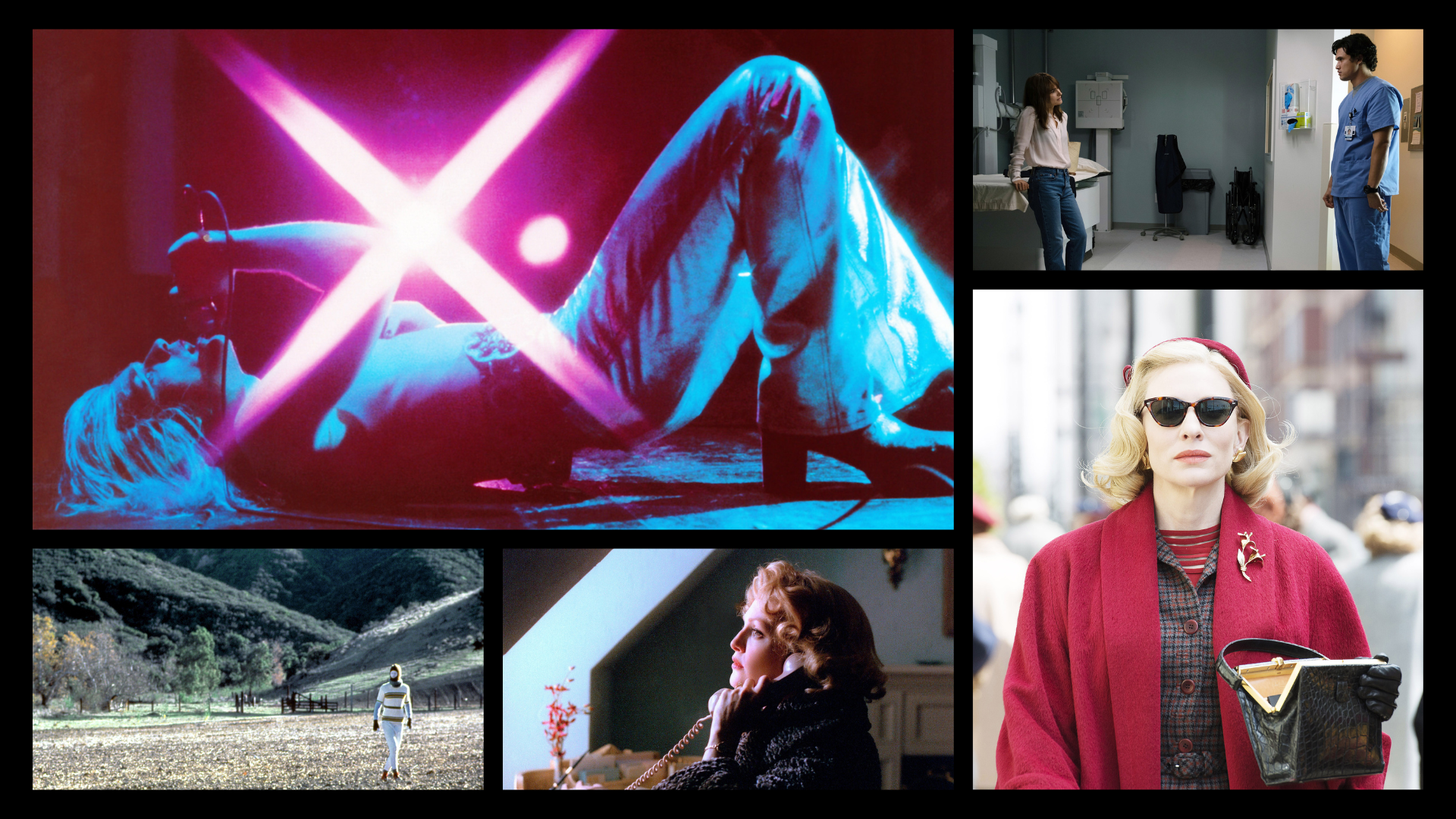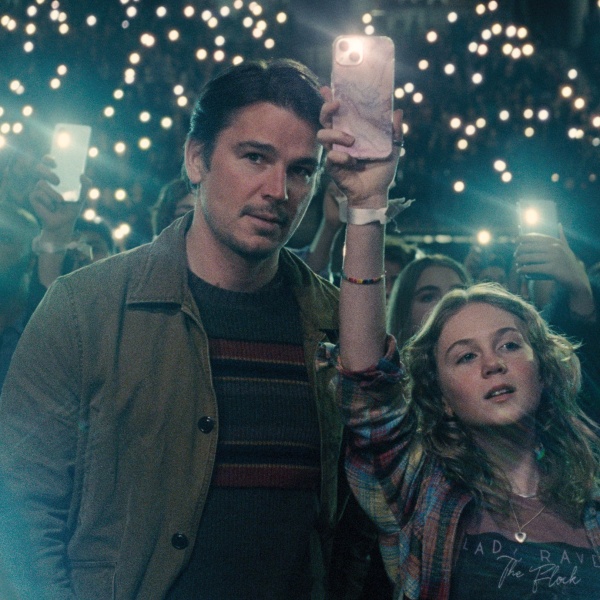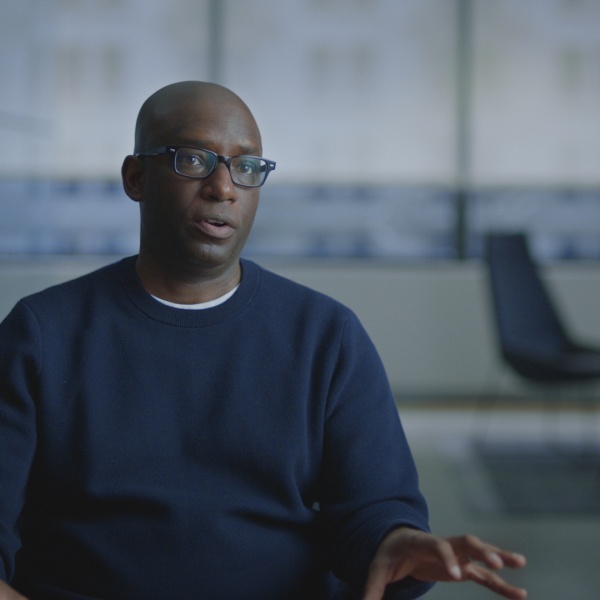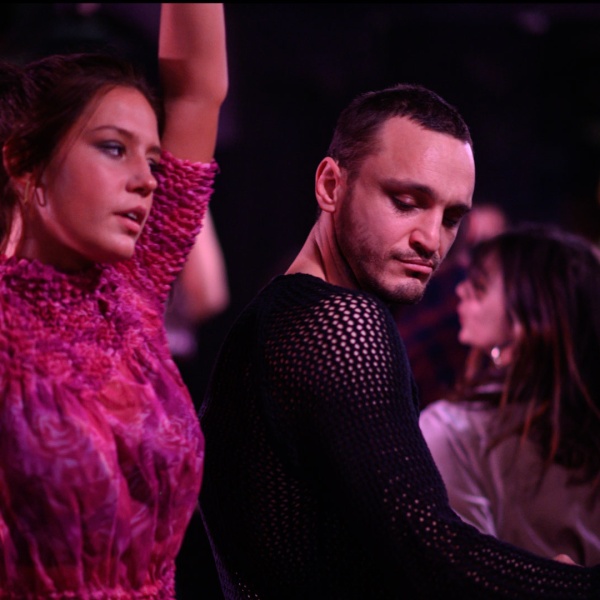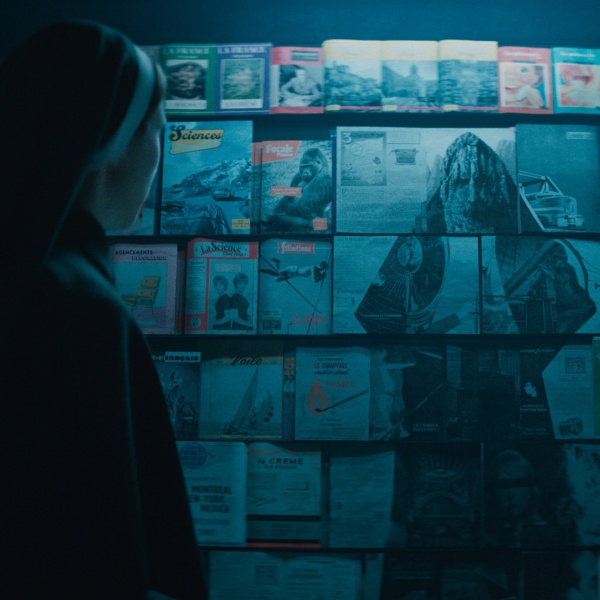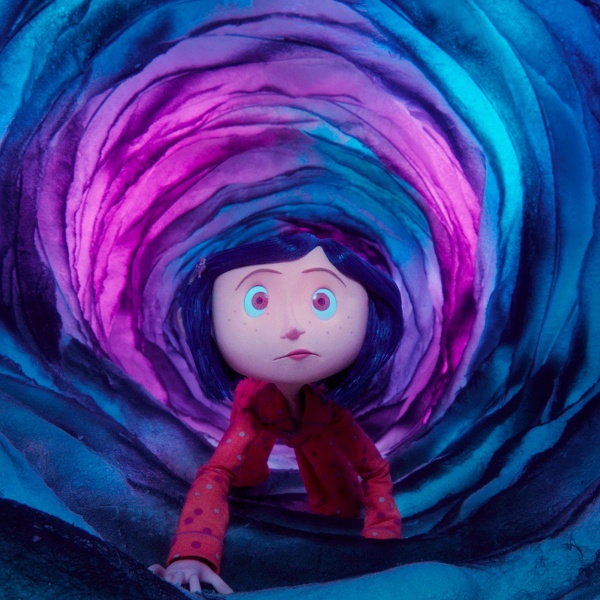Since the beginning of his career, Todd Haynes has made films about two things: fame and transgression. Born in 1961 to a Los Angeles family, Haynes received his BFA in film from Bard College, where he made a short that set the tone for his filmography. Acted out using Barbie dolls, “Superstar: The Karen Carpenter Story” is an unauthorized story of the real-life pop singer and her struggles with anorexia, which is permanently out of circulation thanks to a music copyright lawsuit. Looking at it today through bootleg, the movie’s study of the crushing effects of fame — and hiding misery and suffering behind a happy, plastic façade — feels like the crucible for the artist’s later fixations.
As Haynes graduated from shorts and moved to feature filmmaking, his work began splitting into two types of films. The first type can be described as the movies about ordinary people whose unhappiness in their ordinary lives cause them to break social taboos, or in the case of his breakout movie “Safe,” leave society altogether. His characters’ transgressions are often sexual in nature, between the queer sci-fi experiment of “Poison,” the thwarted interracial love of “Far From Heaven,” or the lush sapphic romance of “Carol.” Then there are Haynes’ rockstar movies, like “Velvet Goldmine,” “I’m Not There,” or his “Velvet Underground” documentary, about mavericks and alternative figures whose very images become embedded in culture.
Haynes’ latest work is another movie that pairs his two twin themes of fame and transgression together, and takes a far more queasy look at the concepts. Based loosely on the Mary Kay Letourneau case, “May December” stars the director’s frequent collaborator Julianne Moore as Gracie, a woman who became a tabloid obsession after she was charged with statutory rape while pregnant with the twins of a 13 year-old boy. Once out of jail, she and the father, Joe (Charles Melton), remained together. 20 years later, they’re living a quiet life away from the spotlight — about to send their kids off to college. But when an actress Elizabeth (Natalie Portman) arrives at their home to do some research for a biopic, her presence opens up old wounds and punctures long-held delusions about the nature of Gracie and Joe’s relationship. The film received excellent reviews out of its Cannes Film Festival premiere, and has been hailed as one of the best movies of the year.
With “May December” beginning its limited theatrical run this week, IndieWire rounded up every feature film from the great director in an effort to determine the best of the best. This ranking includes Haynes’ 10 feature-length movies, but we also threw in “Superstar: the Karen Carpenter Story,” which still ranks up there with his greatest works. Read on for our ranking of all 11 Todd Haynes’ movies, ranked in ascending order.
With editorial contributions from David Ehrlich.
-
11. “Dark Waters” (2019)

Image Credit: Courtesy Everett Collection Haynes is a director with a point of view; you know his movies when you see them. What makes “Dark Waters” rank last is that it’s the only film in the director’s career that truly feels like it could have been made by anyone. A political drama based on the life of Robert Bilott (Mark Ruffalo), “Dark Waters” focuses on the corporate defense lawyer as he sues chemical company DuPont for contaminating a small Ohio town. Mark Ruffalo’s strong performance can’t really solve the fact that the movie simply feels like a gender-swapped “Erin Brockovich,” never managing to rise above its standard biographical trappings to become something truly memorable. It’s not a bad film, but it contains precisely none of what you would want from a Todd Haynes film.
-
10. “Wonderstruck” (2017)

Image Credit: Everett Collection After releasing a true masterpiece in 2017’s “Carol,” Haynes briefly went into a bit of a slump, releasing two films that don’t quite match up to the rest of his ouevre. Aside from “Dark Waters,” the other film in this down period was 2017’s “Wonderstruck,” a much lighter entry in his canon. Essentially Haynes’ “Hugo” — and not just because it’s literally based on a young adult novel from the guy who made “Hugo” — the film follows two connected stories about two deaf children looking for their parents in New York City. The first, told in black-and-white, focuses on Rose (Millicent Simmonds) as she runs away from home in 1927 to find her mother, a famous actress. The second focuses on Ben (Oakes Fegley) as he runs away from his home after a tragic accident to find his father. The movie is charming, sweet, and filled with visual throwbacks to both classic Hollywood and ’70s New Hollywood. At the same time, Haynes doesn’t quite have a hold on the film like Scorsese did on “Hugo;” the tone wobbles a bit uncertainly from scene to scene, and the stories feel unbalanced often, even if they eventually converge in the film’s surprising, rousing climax.
-
9. “The Velvet Underground” (2021)

Image Credit: Courtesy Everett Collection Haynes has always been fascinated by rock stars and pop icons, returning to the subject constantly throughout his career. So it’s no surprise that he eventually made a rock documentary, and his choice of subject was a perfect match for his own interests. A cult band with a legacy as long as their commercial success was limited, The Velvet Underground are the definition of avant-garde, breaking barriers and helping to establish whole genres like punk rock and new wave. For such an unconventional band, Haynes takes an unconventional approach to directing, pairing archival footage and recordings with audio from new interviews, and stitching everything together through a pop-art style palette that recalls Andy Warhol and his art for the band.
-
8. “Poison” (1991)

Image Credit: ©Zeitgeist Films/Courtesy Everett Collection It’s rougher around-the-edges than Haynes’ other works, but “Poison” retains all of the director’s signature ambition, style, and audacious themes. An early entry in the New Queer Cinema moment, the director’s feature debut is essentially an anthology film, telling three stories linked by themes of transgression and sexuality. The first, “Hero,” is told in tabloid documentary style, focusing on a young boy who shoots his father and runs away from home. The second, “Horror,” is a 50’s style sci-fi story about a scientist who drinks a vial of “human sexuality” and transforms into a monster. The third “Homo,” about two men falling in love in prison, caused controversy at the time, with Republicans protesting the fact that the National Endowment for the Arts funded an explicitly gay movie. Haynes made better movies in the following years, but “Poison” shows how fully formed he was as a voice right out of the gate.
-
7. “I’m Not There” (2007)

Image Credit: ©Weinstein Company/Courtesy Everett Collection Another entry in Haynes’ series of rock star films, “I’m Not There” is an anti-biography. Rather than tell the life story of Bob Dylan, Haynes looks at the shape-shifting folk music icon’s public persona and how it changed throughout his life, casting six extraordinarily different actors — Christian Bale, Cate Blanchett, Marcus Carl Franklin, Richard Gere, Heath Ledger, and Ben Whishaw — to play different versions of him. Not every performance hits (Blanchett’s drag take “Jude Quinn” is a highlight), but its freewheeling, experimental approach to Dylan’s life succeeds because it feels so perfectly matched to the icon Haynes is aiming to dissect.
-
6. “Superstar: The Karen Carpenter Story” (1987)

Image Credit: Screenshot At this point, “Superstar” is probably better known for the fact that Richard Carpenter sued to get it taken out of circulation than any of its actual content. But the experimental look at Karen Carpenter’s tragic life is a genuinely affecting curiousity, one that measures up to many of the higher profile movies Haynes would make in the future. Shot over just 10 days while Haynes was still in college, “Superstar” focuses on the last 17 years of Carpenter’s life, as she rises to fame as the singer in a band with her brother — and as her time in the spotlight is marred by her difficult family life and her battles with anorexia. Playing Carpenter, and the rest of the cast, is a Barbie doll: a literalization of how the real woman’s life was commodified. It might sound cruel or lurid, but what makes “Superstar” resonate today is how sincere and loving it is towards its titular subject, and how properly it acts as a tribute for a talent taken far too soon.
-
5. “Far From Heaven” (2002)

Image Credit: ©Focus Films/Courtesy Everett Collection Haynes has long named Douglas Sirk and his heightened, issue-oriented satirical dramas as key influences on his style. “Far From Heaven” makes it more obvious than most. A deliberate throwback to Sirk’s brightly-colored ’50s heartbreakers, “Far From Heaven” patterns itself obviously on the forbidden romance of “All That Heaven Allows,” but updates the story to tackle social issues Sirk and films of that time in general could never touch. Julianne Moore plays homemaker Cathy, who discovers that her husband Frank (Dennis Quaid) is having affairs with men. While she tries to repair her marriage, she also meets a Black gardener Raymond (Dennis Haysbert) and slowly falls for him, but faces blowback from her community over the friendship. It’s a meticulous recreation of Sirk’s work that never feels like a simple imitation because it’s just so alive, filled with longing and desire that the characters keep stifled below the surface.
-
4. “May December” (2023)

Image Credit: ©Netflix/Courtesy Everett Collection A heartbreakingly sincere piece of high camp that teases real human drama from the stuff of tabloid sensationalism, Todd Haynes’ delicious “May December” continues the director’s tradition of making films that rely upon the self-awareness that seems to elude their characters — especially the ones played by Julianne Moore.
Here, the actress reteams with her “Safe” director to play Gracie Atherton-Yoo, a lispy former school teacher who became a household name back in 1992 when she left her ex-husband for one of her 13-year-old students. Now it’s 2015, the situation has normalized somewhat, and Gracie and Joe (a dad bod Charles Melton) have been together long enough that their youngest children are about to graduate high school. Their scandalous romance has settled into suburban reality… or so it would appear. Alas, the past isn’t quite ready to release its grip on these crazy kids just yet, especially once Gracie decides to roll out the welcome mat for a breathy TV actress who’s preparing to play her in an indie film about the scandal (Natalie Portman (phenomenally on pointe in a merciless performance). Inviting the stranger into her life seems innocent enough, but Gracie doesn’t quite understand what else she’s inviting into her life at the same time.
Written by Samy Burch, “May December” is a catty-as-fuck dark comedy that deepens Haynes’ longstanding obsession with performance while poking fun at the kind of actresses he clearly loves so much. The director’s tonal playfulness has sometimes been overshadowed by the unerring consistency of his emotional textures, but here, in the funniest and least “stylized” of his films, it’s easier than ever to appreciate his genius for using artifice as a vehicle for truth. —DE
-
3. “Velvet Goldmine” (1998)

Image Credit: ©Miramax/courtesy Everett / Everett Collection A gangly, lovably messy film, “Velvet Goldmine” is a thinly veiled David Bowie pastiche (the movie was originally meant to feature several of his songs) that uses the glam rock icons larger-than-life persona to explore Haynes’ favorite questions about fame, notoriety, fandom, and sex. The Bowie stand-in is Brian Slade (Jonathan Rhys Meyers), who rises to celebrity status and falls for American star Curt Wild (Ewan McGregor). In a story set years later, Slade’s fan Arthur Stuart (Christian Bale) writes a story about his idol’s disappearance from the public eye. An extravagant parade of music, bright colors, and sequins, “Velvet Goldmine” is Haynes’ most purely fun movie: a dazzling, surreal, and very queer look at how art can shape the lives of both artists and fans.
-
2. “Safe” (1995)

Image Credit: ©Sony Pictures/Courtesy Everett Collection After a promising debut, “Safe” was the film that really made Haynes an indie darling. And 30 years later, the film still measures up as one of Haynes’ absolute best. Julianne Moore, in an incredible performance, plays average housewife Carol, whose placid existence turns into a nightmare when she suddenly develops horrific allergic reactions to everday chemicals. A mesmirizing horror film, the movie speaks to anxieties about modern day life, illness, societal pressures, and conformity, while denying its main character true release and escape. In the years since its release, “Safe” has been analyzed as a feminist film, an anti-feminist film, an AIDS allegory, a capitalism allegory, but it remains difficult to crack Haynes’ code. Despite the title, there’s nothing safe about it.
-
1. “Carol” (2015)

Image Credit: ©Weinstein Company/Courtesy Everett Coll / Everett Collection Whenever Todd Haynes’ unspeakably beautiful Patricia Highsmith adaptation comes to mind, it brings some of the novel’s last words along with it: “It would be Carol, in a thousand cities, a thousand houses, in foreign lands where they would go together, in heaven and hell.” In that light, a spot as Haynes’ best film hardly seems out of reach.
Brought to life by the careful genius of Phyllis Nagy’s script, the supple glow of Ed Lachmann’s 16mm cinematography, and two of the most extraordinary performances ever committed to celluloid (which isn’t to sweep old Harge under the rug where he belongs), Haynes’ Carol is more than just a bone-deep melodrama about a mutual infatuation during a repressive time. It’s more than a vessel for Carter Burwell’s swooning career-best score, or Sandy Powell’s seductive costumes, or the rare queer romance that gave its characters a happy ending — an ending that resonates through Cate Blanchett’s coy smile with the blunt force of every impossible dream Carol Aird has ever had for herself. It’s more than just an immaculate response to decades of “if only” dramas like David Lean’s “Brief Encounter,” or a heartstopping series of small gestures that builds into the single most cathartic last shot of the 21st century. It’s all of those things (and more!), but most of all it’s an indivisibly pure distillation of what it feels like to fall in love alone and land somewhere together. —DE
